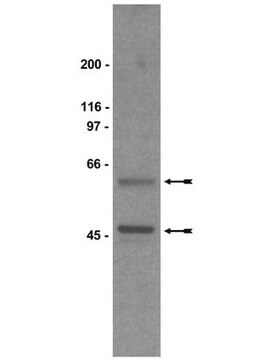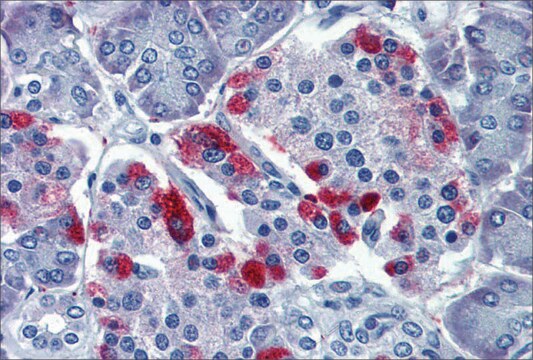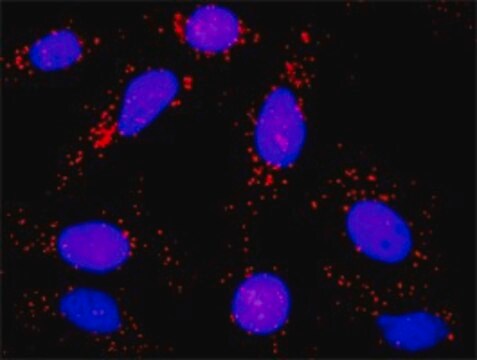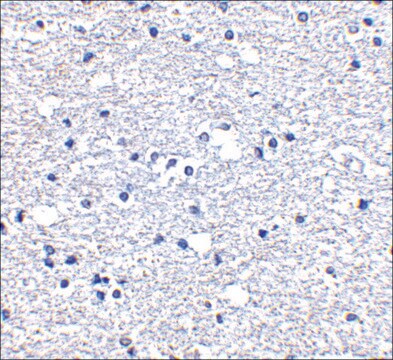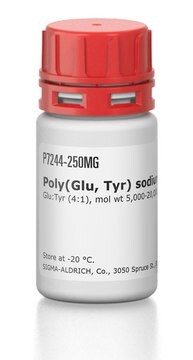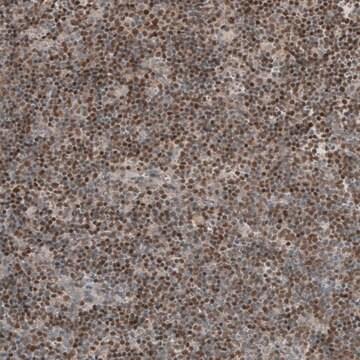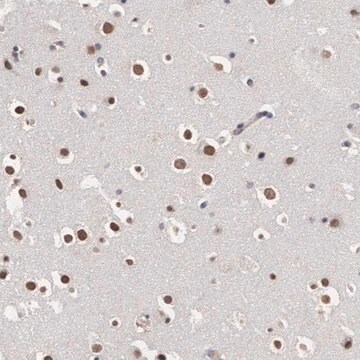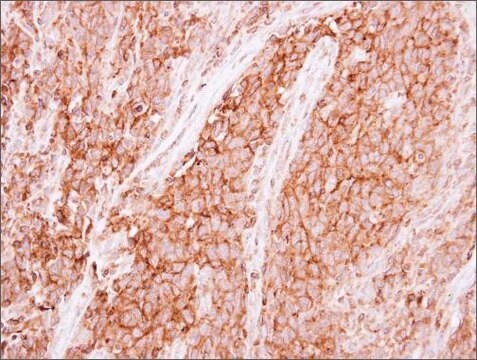MABN543
Anti-Gs protein Antibody, alpha subunit, clone N192/12
clone N192/12, from mouse
Sinônimo(s):
Guanine nucleotide-binding protein G(s) subunit alpha isoforms short, Adenylate cyclase-stimulating G alpha protein
About This Item
Produtos recomendados
fonte biológica
mouse
Nível de qualidade
forma do anticorpo
purified antibody
tipo de produto de anticorpo
primary antibodies
clone
N192/12, monoclonal
reatividade de espécies
rat, human
reatividade da espécie (prevista por homologia)
bovine (immunogen homology)
técnica(s)
western blot: suitable
Isotipo
IgG1κ
nº de adesão NCBI
nº de adesão UniProt
Condições de expedição
wet ice
modificação pós-traducional do alvo
unmodified
Informações sobre genes
human ... GNAS(2778)
Descrição geral
Especificidade
Imunogênio
Aplicação
Neuroscience
Developmental Signaling
Qualidade
Western Blotting Analysis: 2.0 µg/mL of this antibody detected GS protein, alpha subunit in 10 µg of rat brain membrane tissue lysate.
Descrição-alvo
forma física
Armazenamento e estabilidade
Nota de análise
Rat brain membrane tissue lysate
Outras notas
Exoneração de responsabilidade
Não está encontrando o produto certo?
Experimente o nosso Ferramenta de seleção de produtos.
Código de classe de armazenamento
12 - Non Combustible Liquids
Classe de risco de água (WGK)
WGK 1
Ponto de fulgor (°F)
Not applicable
Ponto de fulgor (°C)
Not applicable
Certificados de análise (COA)
Busque Certificados de análise (COA) digitando o Número do Lote do produto. Os números de lote e remessa podem ser encontrados no rótulo de um produto após a palavra “Lot” ou “Batch”.
Já possui este produto?
Encontre a documentação dos produtos que você adquiriu recentemente na biblioteca de documentos.
Nossa equipe de cientistas tem experiência em todas as áreas de pesquisa, incluindo Life Sciences, ciência de materiais, síntese química, cromatografia, química analítica e muitas outras.
Entre em contato com a assistência técnica